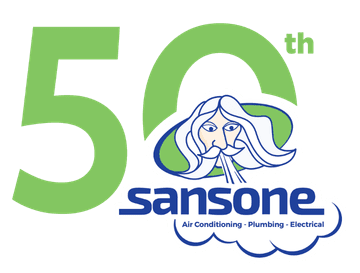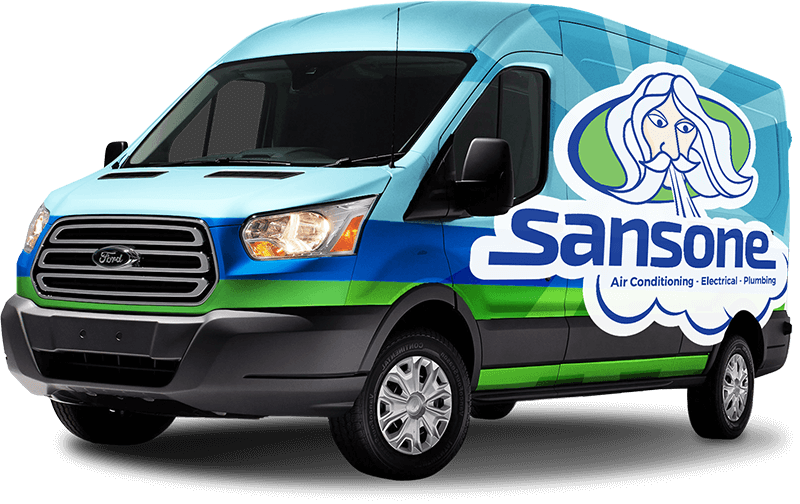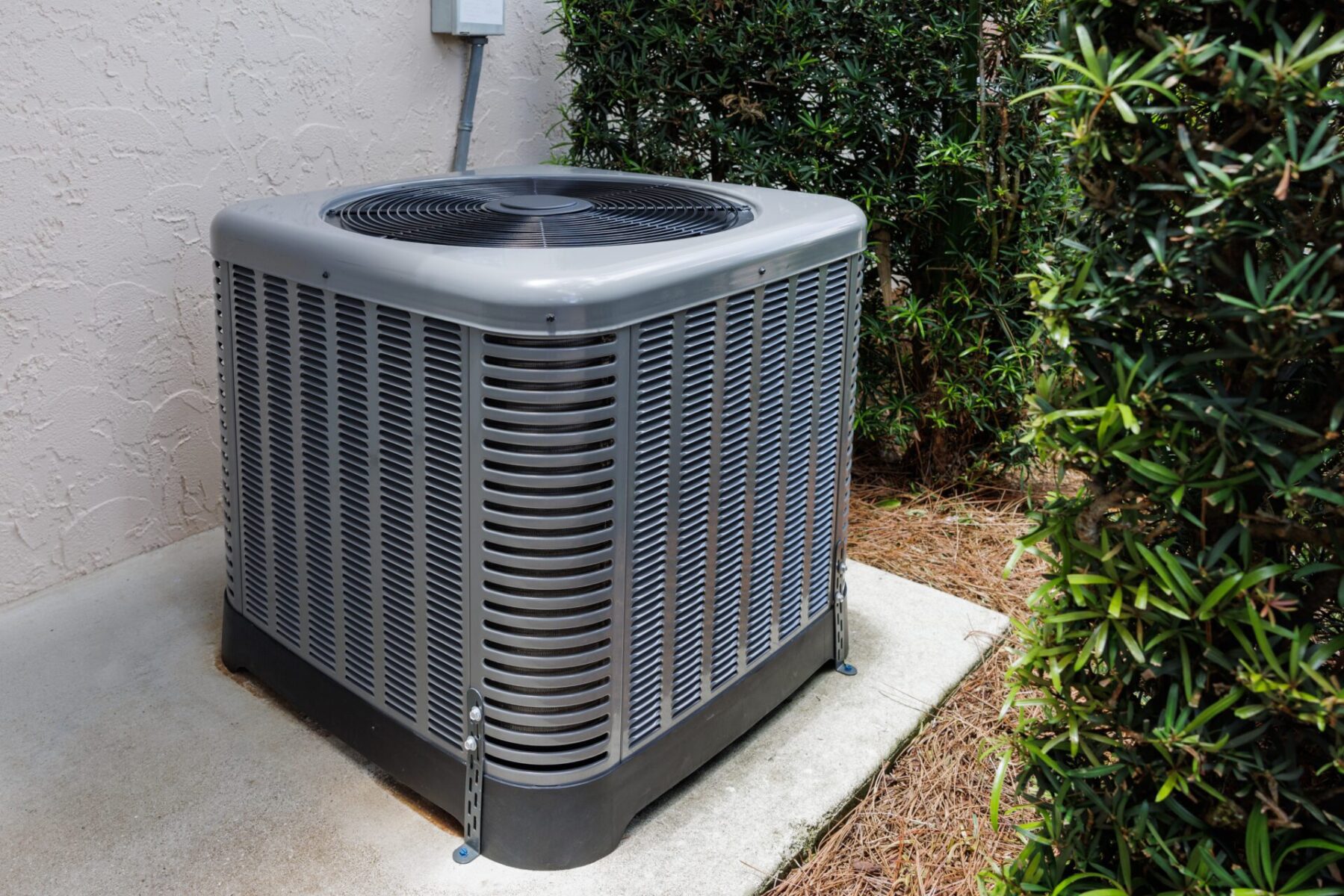
As you examine your utility bill, you might ask a common question: “Does my AC use gas or electricity?” This question is especially relevant when trying to understand and manage your home’s energy consumption. Knowing the energy source of your AC helps you budget properly and make environmentally conscious choices for your household.
Most air conditioners operate on electricity, providing efficient cooling for various settings. This distinction is pivotal in understanding how your AC unit impacts your utility bill. Keep reading to learn more about how AC systems use electricity.
How Does an Air Conditioner Work?
Understanding how an air conditioner works is key to answering the question, “Does AC use gas or electricity?” At its core, an air conditioner moves heat from the inside of your home to the outside. This process involves the evaporator, condenser, compressor, and expansion valve.
The evaporator, which is located inside the house, absorbs heat from the air. A refrigerant inside the evaporator coils extracts heat from the indoor air to cool it down. The heated refrigerant travels to the compressor. The refrigerant is compressed inside the compressor, which is located in the outdoor unit, raising its temperature higher than the outdoor air. This high-temperature, high-pressure gas then moves to the condenser.
In the condenser, the refrigerant releases its heat to the outside air. As it loses heat, the refrigerant transforms from a gas to a liquid. This liquid refrigerant travels back indoors, passing through the expansion valve. The expansion valve reduces the pressure of the refrigerant, cooling it down and preparing it to absorb heat again in the evaporator.
Throughout this cycle, electricity powers components like the compressor and the fan motors that circulate air through the system. This explains why most air conditioning systems depend on electricity to function effectively.
What Does Air Conditioning Refer To?
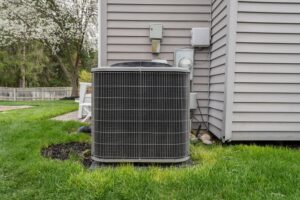
Air conditioning refers to the process of cooling and dehumidifying air to enhance indoor comfort. This technology is essential in many areas, especially those with warmer climates, as it provides a more comfortable indoor environment. Air conditioning involves various methods and equipment to remove heat and humidity from the air, effectively cooling and purifying it.
The principle that underlies air conditioning is heat transfer. An air conditioner transfers heat from inside a space outside, leaving the interior cooler than before. This process is achieved through a cycle involving refrigerant. The refrigerant absorbs heat inside the room and releases it outside, cooling the air inside the space.
The term air conditioning can encompass a range of systems and units, from mini-split systems to large central systems that can cool entire buildings. These systems cool the air while filtering and circulating it, which contributes to improved indoor air quality.
Air Conditioner vs. Air Conditioning
While often used interchangeably, the terms “air conditioner” and “air conditioning” have distinct meanings. An air conditioner refers to the actual hardware, the physical unit or system that performs the cooling process. This could be a split system or a central air conditioning system. It’s the tangible component that houses the compressor, condenser, evaporator, and other vital parts necessary for cooling the air.
On the other hand, air conditioning is a broader term encompassing the overall process and effect of cooling and conditioning the air within a space. This includes the physical unit and the methodology and science behind how the air is cooled, dehumidified, and circulated.
Understanding this distinction is essential, especially when discussing maintenance, installation, or the types of cooling systems available. AC maintenance, for instance, refers to the upkeep of the air conditioner (the hardware), which is vital for efficient and effective air conditioning (the process). If you need an emergency service, feel free to reach out to Sansone.
Central Air vs. Central AC
The terms “central air” and “central AC” are also often used synonymously, but they can have slightly different connotations. Central air is a central air conditioning system that cools and circulates air throughout a building or home. This system usually includes a large outdoor unit and a network of ducts that distribute cool air to different rooms.
Central AC is a shorter form of central air conditioning. It explicitly denotes the air conditioning system’s cooling aspect. It implies the presence of a central system that provides cooling to the entire structure.
Recharging Gas in AC Units
Conversations around recharging gas in AC units can lead to some confusion regarding whether AC units use gas or electricity. In air conditioning systems, the term “gas” refers to refrigerant, a substance essential for cooling. The refrigerant isn’t a fuel but rather a medium that carries heat from the inside of a building to the outside.
The need to recharge or refill the refrigerant in AC systems can create the misconception that AC units are powered by gas. In reality, the electricity powers the air conditioner’s components, such as the compressor and fans, to facilitate the movement and transformation of the refrigerant from a liquid to a gas and back.
Understanding this distinction is vital when it comes to AC maintenance. While electricity is the primary energy source for running the AC, maintaining the right level and type of refrigerant improves the system’s effectiveness. Regular maintenance checks ensure the refrigerant levels are steady and the system functions as intended, providing adequate cooling and efficient energy consumption.
What Kind of Power Do Heat Pumps Use?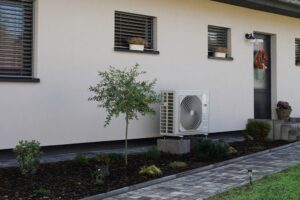
When exploring the question “Does central AC use gas or electricity”, you should naturally consider heat pumps, a common type of central AC system. Heat pumps are unique because they provide both heating and cooling. They work similarly to traditional air conditioners when cooling a home and can reverse the process to heat your space during colder months.
One answer to “Does central AC use gas or electricity” is this: heat pumps typically use electricity as their primary power source. In the cooling mode, a heat pump works like an air conditioner, moving heat from inside the home to the outside. When in heat mode, the process reverses: the heat pump extracts heat from the outdoor air and transfers it inside. Even in relatively cold temperatures, there’s enough ambient heat outside for the heat pump to work efficiently.
One of the key advantages of heat pumps is their energy efficiency. Since they move heat rather than create it, they often use less electricity than traditional heating methods, like furnaces. This efficiency makes them attractive to those who want to reduce their energy consumption and utility bills.
For optimal performance and efficiency, regular AC maintenance is crucial. This includes cleaning or replacing filters, checking refrigerant levels, and ensuring all components function correctly. Proper maintenance extends the life of an AC unit and keeps it running efficiently, which can impact your energy consumption and costs.
Air Conditioning Maintenance With Sansone
When addressing the question, “Does AC use gas or electricity?” it’s essential to recognize the importance of professional maintenance and repair services. Sansone provides expert assistance in maintaining and repairing your AC unit to make sure it operates efficiently. Regular maintenance performed by skilled technicians can extend the life of your AC unit and prevent common issues that arise from wear and tear or improper use.
If your AC unit is experiencing problems, we’ll provide the comprehensive support it needs. Our expertise covers various AC systems, ensuring your unit receives the appropriate care. Book an appointment online with Sansone to schedule a time that works best for you.
